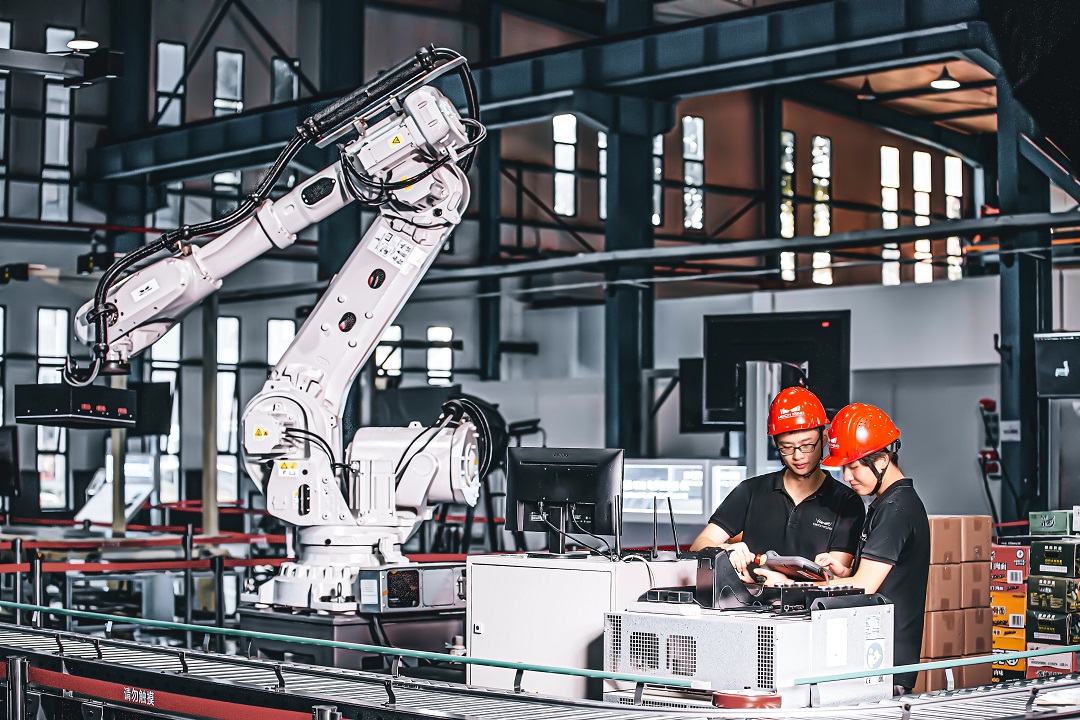Best Manufacturing Companies In 2024
A manufacturing company is an organization that produces goods through various processes and methods. These companies typically transform raw materials or components into finished products that can be sold to consumers or other businesses.
Here are some key points about manufacturing companies:
Production Facilities:
Manufacturing companies operate production facilities where the transformation of raw materials occurs. These facilities can range from small workshops to large-scale factories, depending on the scale of production.
Supply Chain Management: Manufacturing companies often manage complex supply chains involving the sourcing of raw materials, logistics, inventory management, and distribution of finished products. Effective supply chain management is crucial for ensuring a smooth production process and timely delivery.
Production Processes:
Manufacturing companies employ specific production processes that vary depending on the industry and the product being manufactured. These processes can include assembly lines, machining, fabrication, molding, or chemical processes, among others.
Quality Control: Maintaining high-quality standards is vital for manufacturing companies. They implement quality control measures to ensure that products meet specified standards and customer expectations. This includes conducting inspections, testing, and quality assurance procedures at various stages of production.
Workforce:
Manufacturing companies employ a diverse workforce, including engineers, technicians, machine operators, assembly line workers, and administrative staff. Skilled labor plays a crucial role in the manufacturing process, and companies may also invest in training programs to enhance employee skills.
Technology and Automation: Many manufacturing companies incorporate advanced technologies and automation systems to streamline operations, improve efficiency, and increase productivity. This can include robotics, computer-aided design/manufacturing (CAD/CAM), and data analytics.
Compliance and Regulations:
Manufacturing companies must adhere to industry-specific regulations and safety standards. This includes compliance with environmental regulations, workplace safety guidelines, product safety standards, and intellectual property rights.
Product Development: Manufacturing companies often engage in research and development (R&D) activities to innovate and create new products or improve existing ones. This can involve prototyping, testing, and collaboration with suppliers and customers.
Market Considerations: Manufacturing companies need to consider market demand, competition, pricing strategies, and customer preferences to ensure their products remain relevant and competitive in the marketplace.
Sustainability and Social Responsibility: Many manufacturing companies are increasingly focusing on sustainable practices, such as reducing waste, conserving energy, and adopting eco-friendly manufacturing processes. Social responsibility initiatives, such as fair labor practices and community engagement, are also important aspects for some companies.
It’s important to note that manufacturing companies can operate in various industries, ranging from automotive and electronics to food and beverages, pharmaceuticals, textiles, and many others. Each industry has its own specific characteristics and requirements.
Manufacturing Company in Bangladesh:

Bangladesh has emerged as a major player in the global manufacturing industry, attracting attention for its competitive advantage in terms of low-cost labor, strategic geographic location, and a rapidly growing economy. The country’s manufacturing sector has witnessed remarkable growth over the years, with numerous companies establishing themselves as key players in various industries. This article explores the thriving manufacturing landscape in Bangladesh, highlighting the factors contributing to its success and showcasing some prominent manufacturing companies in the country.
1. The Rise of Manufacturing in Bangladesh:
Bangladesh’s manufacturing Company sector has experienced significant growth, transforming the country into a manufacturing hub for both domestic consumption and international trade. The government’s proactive policies, favorable investment climate, and supportive regulatory frameworks have been instrumental in attracting foreign direct investment (FDI) and fostering the growth of local manufacturing companies.
2. Key Factors Driving Manufacturing Company Success:
a. Cost Advantage:
One of the primary factors contributing to the success of manufacturing companies in Bangladesh is the availability of low-cost labor. The country’s abundant workforce, coupled with comparatively low wages, provides a significant cost advantage to manufacturers, making Bangladesh an attractive destination for outsourcing and production.
b. Strategic Location:
Bangladesh’s strategic location at the crossroads of South Asia and Southeast Asia offers convenient access to major markets. The country’s proximity to India, China, and ASEAN nations facilitates trade and logistics, reducing lead times and transportation costs for manufacturers.
c. Robust Infrastructure:
Over the years, Bangladesh has invested heavily in improving its infrastructure, including ports, roads, and power supply. This infrastructure development has enhanced the efficiency and competitiveness of manufacturing companies, enabling them to meet global standards and fulfill orders in a timely manner.
d. Skilled Workforce:
Bangladesh boasts a young and dynamic workforce, with a strong work ethic and a willingness to learn. The presence of numerous technical and vocational training institutes in the country ensures the availability of skilled manpower for the manufacturing sector.
3. Prominent Manufacturing Companies in Bangladesh:

a. Textile and Garments:
Bangladesh is renowned for its thriving textile and garments industry, with companies like Square Textiles Ltd., Beximco Textiles Ltd., and Youngone Corporation playing a significant role in the sector. These companies produce a wide range of apparel and textile products, catering to both domestic and international markets.
b. Pharmaceuticals:
The pharmaceutical industry in Bangladesh has experienced remarkable growth, with companies such as Beximco Pharmaceuticals Ltd., Square Pharmaceuticals Ltd., and ACI Limited leading the way. These companies manufacture and export high-quality generic drugs, contributing to affordable healthcare solutions globally.
- Consumer Goods:
Manufacturing companies like PRAN-RFL Group, ACI Consumer Brands, and Unilever Bangladesh Ltd. have made significant contributions to the consumer goods sector. They produce a diverse range of products, including food and beverages, personal care items, and household goods, catering to the needs of the domestic market and beyond.
d. Shipbuilding:
Bangladesh’s shipbuilding industry has gained international recognition, with companies such as Western Marine Shipyard Ltd., Ananda Shipyard & Slipways Ltd., and Khulna Shipyard Ltd. showcasing their expertise. These companies construct and export a wide variety of vessels, including cargo ships, fishing trawlers, and passenger ferries.
Conclusion:
The manufacturing sector in Bangladesh has become a cornerstone of the country’s economic development, offering employment opportunities, driving export growth, and contributing to foreign exchange earnings. With its favorable business environment, cost advantage, and strategic location, Bangladesh continues to attract investment in diverse manufacturing industries. As the country further strengthens its infrastructure and develops its skilled workforce, the future of manufacturing in Bangladesh looks promising, paving the way for continued growth and success.
